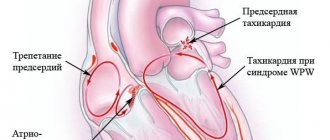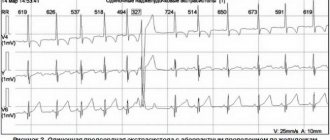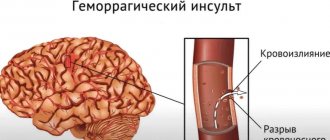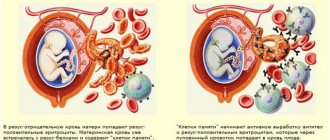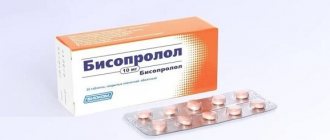Possible complications
Ignoring the symptoms of minor hemoptysis can lead to the development of massive bleeding.
It causes the airways to fill with blood, which blocks access to air. As a result, death from asphyxia (suffocation) may occur. Death is also possible with heavy blood loss, amounting to about 4–4.5% of the total body weight. If left untreated, the disease that caused hemoptysis continues to progress and cause complications. With cancer, metastases appear, with pneumonia and tuberculosis - fibrosis of the lung tissue, with bronchiectasis - bleeding, abscess, infarction and necrosis of the lung.
4.Treatment
Therapy in any case will be etiopathogenetic in nature (as far as possible), i.e. The main target will not be the cough itself, but the factors that cause it. The range of therapeutic approaches in modern pulmonology (and medicine in general) is extremely wide; their specific choice is determined by the diagnostic results. In some cases, standard anti-inflammatory treatment is sufficient, in others there are absolute indications for emergency surgery, etc.
It is important to emphasize once again: a doctor’s consultation is needed urgently or urgently if:
- “bloody” sputum expectorated with a cough is very copious and/or has a strong unpleasant odor;
- cough mixed with blood occurs against the background of “unreasonable” recent loss of body weight, hyperhidrosis (excessive sweating), fatigue;
- cough is accompanied by signs of pulmonary hemorrhage (profuse, frothy scarlet blood).
What causes hemoptysis in cancer?
95% of the blood enters the lungs through the pulmonary arteries, which have low pressure. Having reached the capillary bed, it gives off carbon dioxide and is saturated with oxygen. The remaining part of the blood (5%) reaches the lungs through the bronchial arteries, which have high pressure. It nourishes the respiratory organs and respiratory tract. Hemoptysis is characterized by bleeding from the bronchial arteries. The only exceptions are cases when the pulmonary arteries receive mechanical damage.
Hemoptysis in lung cancer develops against the background of malignant transformation of the epithelium of the respiratory tract. Blood loss is usually minimal. Massive bleeding develops only when the tumor grows into a large artery. This is a dangerous condition that can lead to death due to asphyxia or excessive blood loss.
2. Reasons
The most common cause of hemoptysis is diseases of the respiratory system. Here it should be remembered that a cough is a repeated spastic contraction of the respiratory muscles with forced exhalation (inhalation may be difficult and incomplete), most often caused by inflammatory, mechanical or chemical irritation of the upper respiratory tract - trachea, bronchi, larynx, as well as nasopharyngeal or pleural receptors.
Accordingly, infectious and inflammatory processes lead among the causes:
- tuberculosis;
- “smoldering” suppuration in pathologically distended incompetent bronchi (chronic bronchiectasis);
- some specific types of bacterial (less often viral) pneumonia;
- abscessing inflammatory process in the lungs;
- clinically significant bronchitis, acute or chronic.
The second most common group of causes are tumors, both malignant neoplasia in the lungs and benign formations in the bronchi (for example, adenoma).
Other reasons include:
- pulmonary thromboembolism (in turn, which can occur under the influence of various factors - thrombophlebitis, surgery, etc.);
- some types of severe cardiac pathology (rheumatism, congenital or acquired defects);
- trauma and/or foreign body in the lungs;
- diseases of the upper gastrointestinal tract;
- some genetic, autoimmune, idiopathic diseases (cystic fibrosis, Wegener's granulomatosis, hemorrhagic diathesis, pulmonary hemosiderosis, etc.).
Finally, some sources emphasize that from five to fifteen percent of cases of coughing up blood remain etiologically unclear, i.e. the cause is not identified even with a comprehensive examination.
Visit our Pulmonology page
Diagnostic methods in Medscan
Diagnosis for hemoptysis includes:
- Taking anamnesis - it is important to establish the history of the symptom and the presence of chronic diseases that could cause it.
- Physical examination - allows you to detect accompanying symptoms.
- Laboratory tests - Abnormalities in blood and urine values may be clinically significant.
- Computed tomography - in Medscan CT allows you to identify inflammatory processes, pulmonary neoplasms, determine their nature, stage of development and the presence of metastases.
- Bronchoscopy - this method makes it possible to assess the condition of the bronchi and take a sample of lung tissue for histological examination. Based on it, the doctor judges the presence of a tumor, its benignity or malignancy.
1.General information
First of all, a few general words should be said about those situations when a person sees his own blood outside the body. If this is a medical procedure (for example, blood sampling for clinical analysis), or a superficial scratch (which, however, must also be aseptically treated to avoid infection), or menstrual blood in women (without any deviations from the established cycle) - worry, Of course it's not worth it.
But any other appearance of blood, even in small or barely noticeable quantities (any signs of hemorrhage, bleeding ulcers, “leaking” effusion, etc.) is in all cases a serious situation, requiring consultation, examination and medical intervention, and often ( depending on a number of circumstances), assistance should be provided not just “in the near future,” but on an urgent or emergency basis.
This is especially true for massive blood impurities in urine, feces or expectorated sputum: such phenomena never arise “just like that” - this is a symptom, and in medicine it is considered one of the most formidable.
Coughing up blood, tasting or having blood in the mouth can have many different causes.
Some of them may not pose an immediate threat to life and health. But this is one of those cases when it is definitely better to make a mistake like a “false alarm” by visiting or calling doctors “in vain” than to waste precious time and bring the situation to a critical or irreversible point.
A must read! Help with hospitalization and treatment!
Treatment methods in Medscan
The choice of treatment methods depends on the disease that caused hemoptysis and the stage of its development. For malignant neoplasms in the lungs, the following are prescribed:
- early resection;
- chemotherapy;
- radiation therapy;
- immunotherapy;
- targeted therapy;
- stereotactic radiotherapy.
In case of massive bleeding, Medscan specialists perform embolization of the bronchial artery. This is a minimally invasive method that involves blocking a bleeding vessel. It allows you to stop blood loss in 90% of cases. If there is no effect, emergency surgery is performed.
When to Seek Help Immediately
Dial 103, 112 or go to the nearest emergency department if Coughing up blood: MedlinePlus Medical Encyclopedia:
- coughing up blood began after a fall or chest injury;
- there is a lot of blood when coughing - 2 or more teaspoons;
- in addition to sputum, blood appeared in the stool or urine;
- hemoptysis Coughing up blood Causes - Mayo Clinic (this is the name for the process of releasing blood with sputum) is accompanied by other symptoms - chest pain, severe dizziness, fever, shortness of breath.
Such signs indicate serious disorders in the upper respiratory tract, lungs or cardiovascular system. If you don't seek help immediately, you could die.
Fortunately, hemoptysis does not always signal dangerous conditions.
Currently reading
